A product many have not even heard of is causing an apocalypse of sorts for the world’s orangutans.
In Indonesia and Malaysia, rainforests are being slashed and burned at an alarming rate to make way for a third world cash crop: palm oil.
Palm oil has become almost ubiquitous in household products; it is used in instant ramen dishes, shampoo and conditioner, makeup and skin care products, chocolate-hazelnut spreads and nearly half of all packaged goods at any given supermarket. Many manufacturers have turned to palm oil because it is so cheap—until one factors in the cost to both human health (it is horrible for your heart), and the irreplaceable rainforests both our global ecosystem and the native orangutans depend upon.
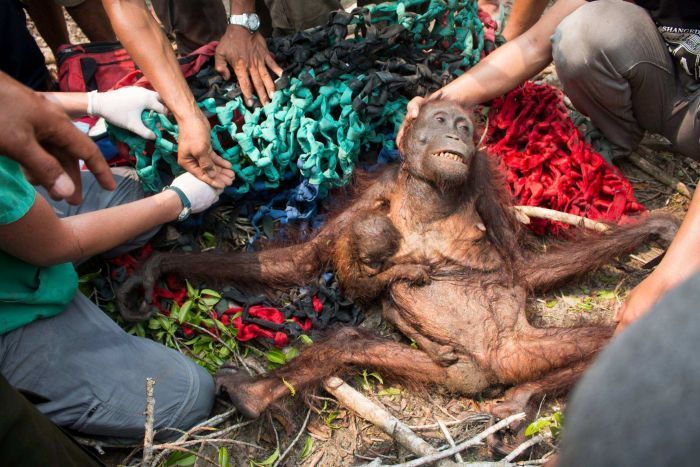
To date, over 90 percent of orangutan habitat has already been destroyed. Additionally, smoke and debris from the fires are causing further damage to our primate relatives.
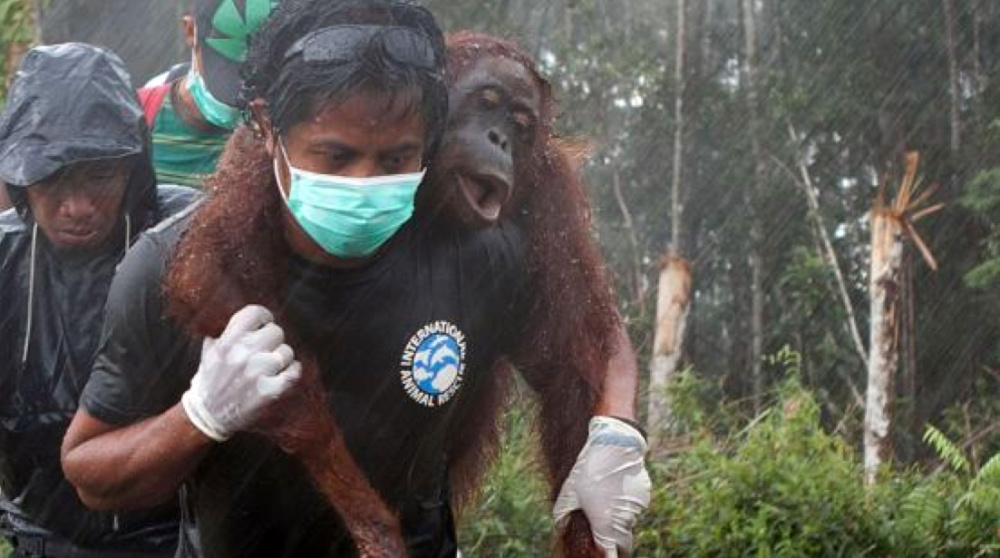
“The problem with fire and smoke is absolutely dire,” said Lis Key, International Animal Rescue’s communications manager in a Takepart interview. “Wild orangutans and orangutans in centers like ours are badly affected by the smoke. Some suffer upper respiratory tract infections, which can even prove fatal. Some of the babies we’ve taken in recently have been suffering not only from dehydration and malnourishment through lack of food but also breathing problems from the polluted air.”
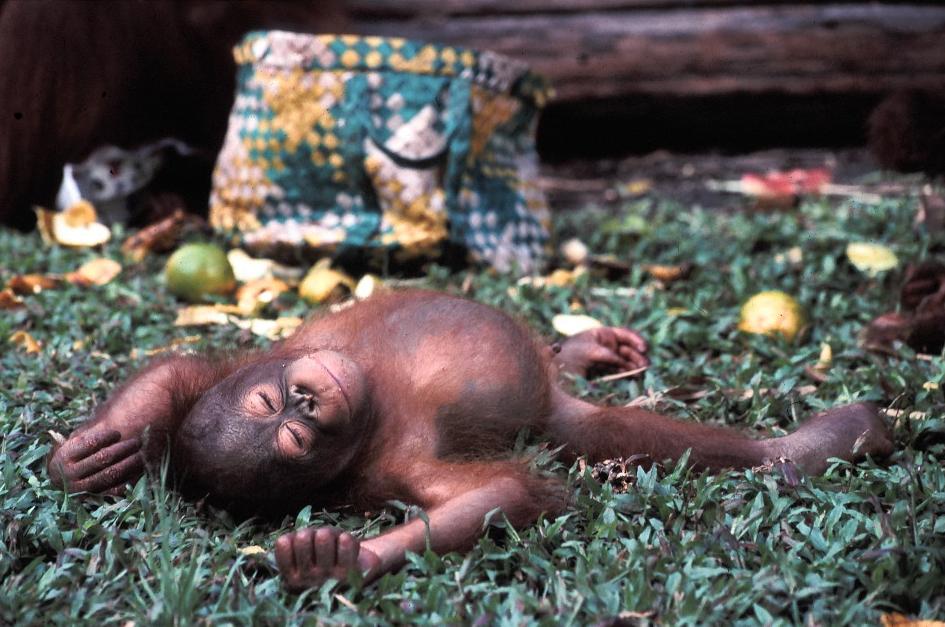
One must wonder if a lower price point is worth the suffering and even possible extinction of living beings.
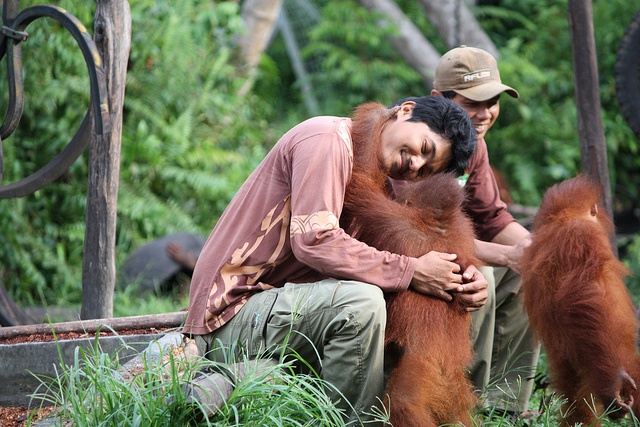
Luckily, it is not game over for orangutans yet, and there are steps we can all take, right now: boycott products or companies that use non-sustainable palm oil, write to companies that make products you use with this ingredient and tell them you won’t support unsustainable palm oil, educate friends and family and click here. A different ending to this story may yet be possible.
The Palmoil Problem

Of the 11 million hectares of oil palm plantations globally, about 6 million are found in Indonesia. These plantations are quickly pushing out native rainforests and the species associated with them. Chiefly affected is the Orangutan. One of our distant cousins, these intelligent primates are facing increased poaching consequently, pushing them towards becoming critically endangered. Habitat conversion from natural forests to oil palm plantations has devastating impacts on tropical forests, along with the plants, animals, insects, birds and reptiles that depend on them.
Borneo and Sumatra are two of the most bio-diverse regions of the world, yet have the longest list of endangered species – namely, the orangutan. Orangutans exist as two distinct species, the Sumatran Orangutan and the Borneo Orangutan. Scientists currently estimate that fewer than 60,000 orangutans remain in the wild of Borneo and Sumatra. Clear cutting of forests undertaken by the palm oil industry has also facilitated access for hunters and traders. It is the main factor for the dramatic reduction of orangutan populations.

An area the size of 300 football fields of rainforest is cleared each hour in Indonesia and Malaysia to clear room for the production of a single vegetable oil. This amounts to six football fields being destroyed per minute. Since 1990, the total area of Indonesia covered by palm oil plantations has grown 600 percent.
Palm oil can be found in nearly all products we use. From soaps to lotions to fuels, it is found in nearly half of the products found in grocery stores. The United States is the largest consumer of palm oils, consuming 1.2 million metric tons of the product yearly.
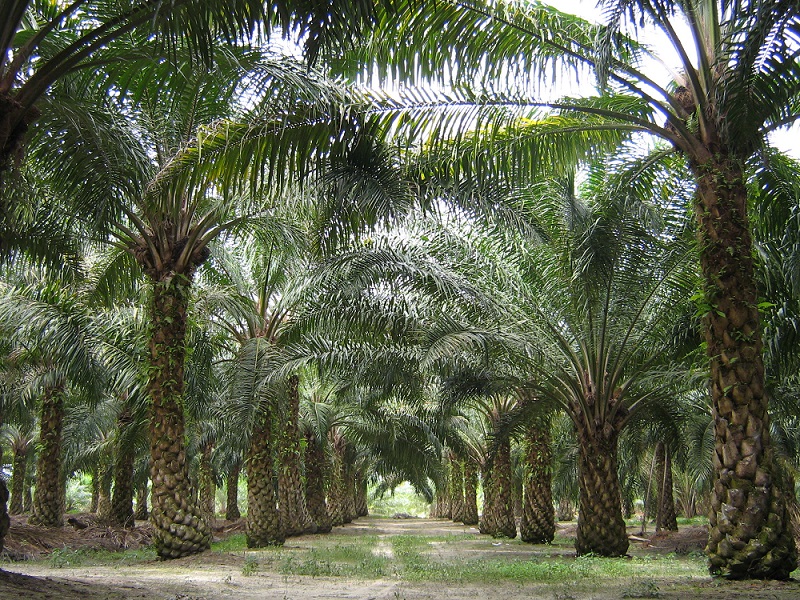
In 2006, after a European Union incentive promoting the use of biofuels for transport, the use of palm oil as a biofuel in the E.U. has increased by 365 percent, making the overall consumption of palm oil 5.6 million metric tons.
The conversion of Indonesia’s rainforests into energy crops is responsible for more carbon pollution each year than all the cars, trucks, planes, trains and ships in the U.S. combined. Indonesia has the world’s third largest greenhouse gas emissions behind only China and the U.S. This is exclusively because of deforestation.
Part of the correlation between orangutan endangerment and palm oil is because both parties favor fertile lowland soils close to rivers. As such, when competition occurs it is usually the latter that comes out successively. To clear land for the building of habitats, often fires are used to destroy vast areas of orangutan habitat. Unfortunately, these slow moving apes frequently burn to death, unable to escape flames. Not only that, but in some areas of Borneo and Sumatra, orangutans are seen as pests and shot by plantation owners or farmers.
Over 50,000 orangutans have already died as a result of deforestation due to palm oil in the last two decades. If this trend is to continue, our furry cousins will be extinct in the wild within three years to 12 years; they will be extinct from the jungle they occupy in 20 years.
There is only a singly chromosome difference between orangutans and humans. They have the ability to reason and think. Chentek, an orangutan at the Atlanta Zoo in the U.S., was taught American Sign Language and acquired a vocabulary of over 500 words. They are vital to the ecosystem in South-East Asia. Orangutans cannot live without the rainforest, and the rainforest cannot live without orangutans.
This Article (Orangutan Apocalypse) is free and open source. You have permission to republish this article under a Creative Commons license with attribution to the author and AnonHQ.com.




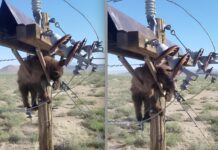

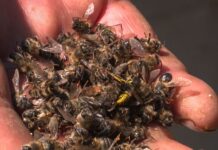
Spit fire OUTRAGEOUS…..accepted killing humans with no shame
silentnomore.com
Comments are closed.